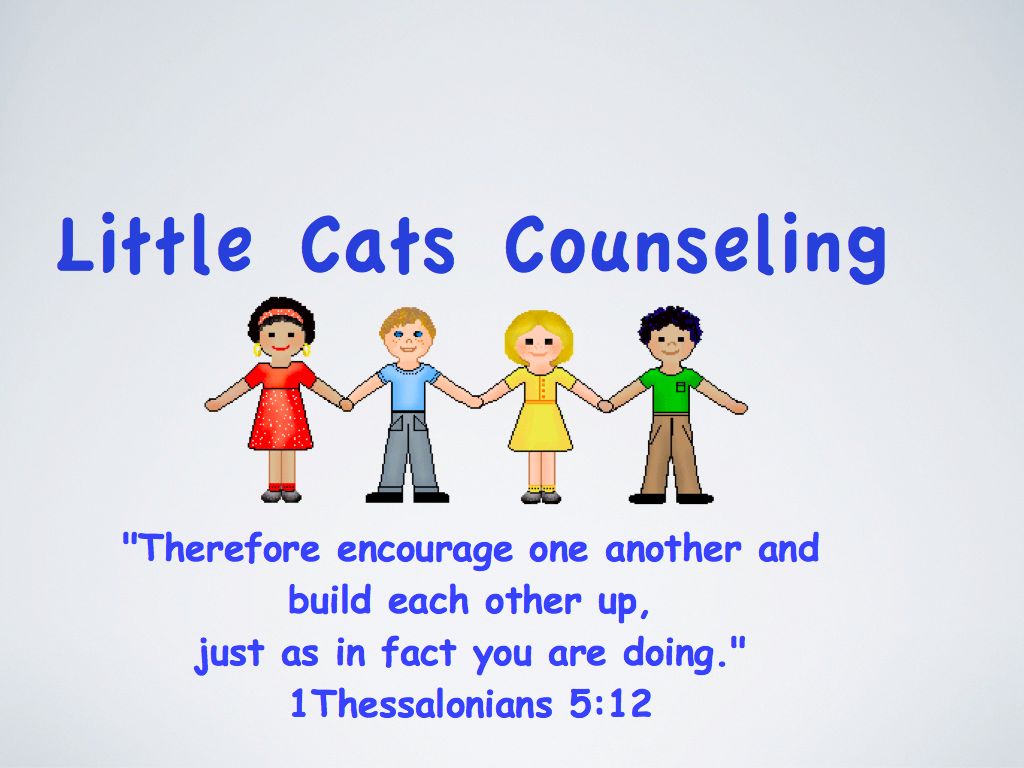We have been having lots of fun during large group guidance lessons (and don't want to keep it all to ourselves!) so I thought I would share what's been going on during my time with your children. It's been a fast a furious fall and students in all grades (4K - 5) have taken more time to learn about their classmates and themselves. Since school started, we have been focusing on friendships - how we treat one another, what God's word says about getting along, and setting an example with our behavior and words. Students in all elementary grades had the opportunity to share special gifts and talents with their classmates through activities designed to promote self-respect. Four year olds and kindergartners shared through song, first-graders and second-graders shared through writing activities, and third graders through fifth graders were partnered with another classmate to interview him/her and learn what makes him/her unique. Games, such as "People Bingo", and books, such as Chrysanthemum by Kevin Henkes, provided fun and interesting ways for students to learn more about their classmates and themselves.
As we make our way through the second nine weeks, we are shifting focus a bit. In most classrooms we are wrapping up the topic of friendship and beginning to focus on study skills. Four year olds and kindergartners are working hard on becoming better listeners. Books, such as Henry B. Wigglebottom Learns to Listen by Howard Binkow, and puppets help teach young ones to become better listeners. In the next few weeks, first and second graders will begin working on listening and listening for directions (that are only given once!). Third graders will soon begin to work on listening as well and they will have the opportunity to rate themselves as listeners and establish personal listening goals. Fourth graders will be focusing on responsibility - using their time wisely and learning how to study. Fifth graders are learning more about their personal learning style - what it means, why it is important, and how to study according to your learning style. I hope the skills we are covering during large group class sessions will translate to success in the classroom - both academically and socially!
Friday, October 28, 2011
Monday, August 8, 2011
The Family is Critical for a Successful School Year
Things are buzzing at Trinity School as the new school is about to begin! I am so excited about seeing old faces, new faces, and young faces - students are what make my job fun!
Before the year begins, I would like to share an excerpt from an article I was recently reading. The article is entitled "A New Generation of Evidence: The Family is Critical in Student Achievement" by Anne T. Henderson and Nancy Berla. In the article, the authors listed seven characteristics of families whose children find success in school. The characteristics are:
Before the year begins, I would like to share an excerpt from an article I was recently reading. The article is entitled "A New Generation of Evidence: The Family is Critical in Student Achievement" by Anne T. Henderson and Nancy Berla. In the article, the authors listed seven characteristics of families whose children find success in school. The characteristics are:
- Establish a daily family routine: Provide time and a quiet place to study. Try to eat dinner together as a family. Embrace family traditions.
- Monitor extracurricular activities: Set limits on your child's TV time, Internet use, etc...
- Model the value of learning: Communicate to your child through questioning and conversation. Demonstrate that a sense of productivity and achievement comes through hard work. And... read...read...read!
- Express high (and realistic) expectations for achievement: Set goals that are appropriate for your child's age and maturity. Recognize your child's God given gifts and talents.
- Encourage your child's progress in school: Encourage your child's effort, patience in solving problems, and question your child about his or her favorite part of the school day.
- Encourage reading, writing, and communication among family members: Read and listen to your child read. Talk about what he or she is reading in school. Discuss the day or tell stories over dinner. Make the most of the time in the car (especially the carpool line!).
- Use community resources: Enroll children in sports programs or lessons. Take your child to community landmarks. Go sightseeing in your community.
As parents, we know the importance of the role we play in our child's education. But it's also nice to know there is evidence supporting that belief. Thank you for partnering with us as we begin another year at Trinity. I pray you and your child will have successful school year!
Subscribe to:
Comments (Atom)
